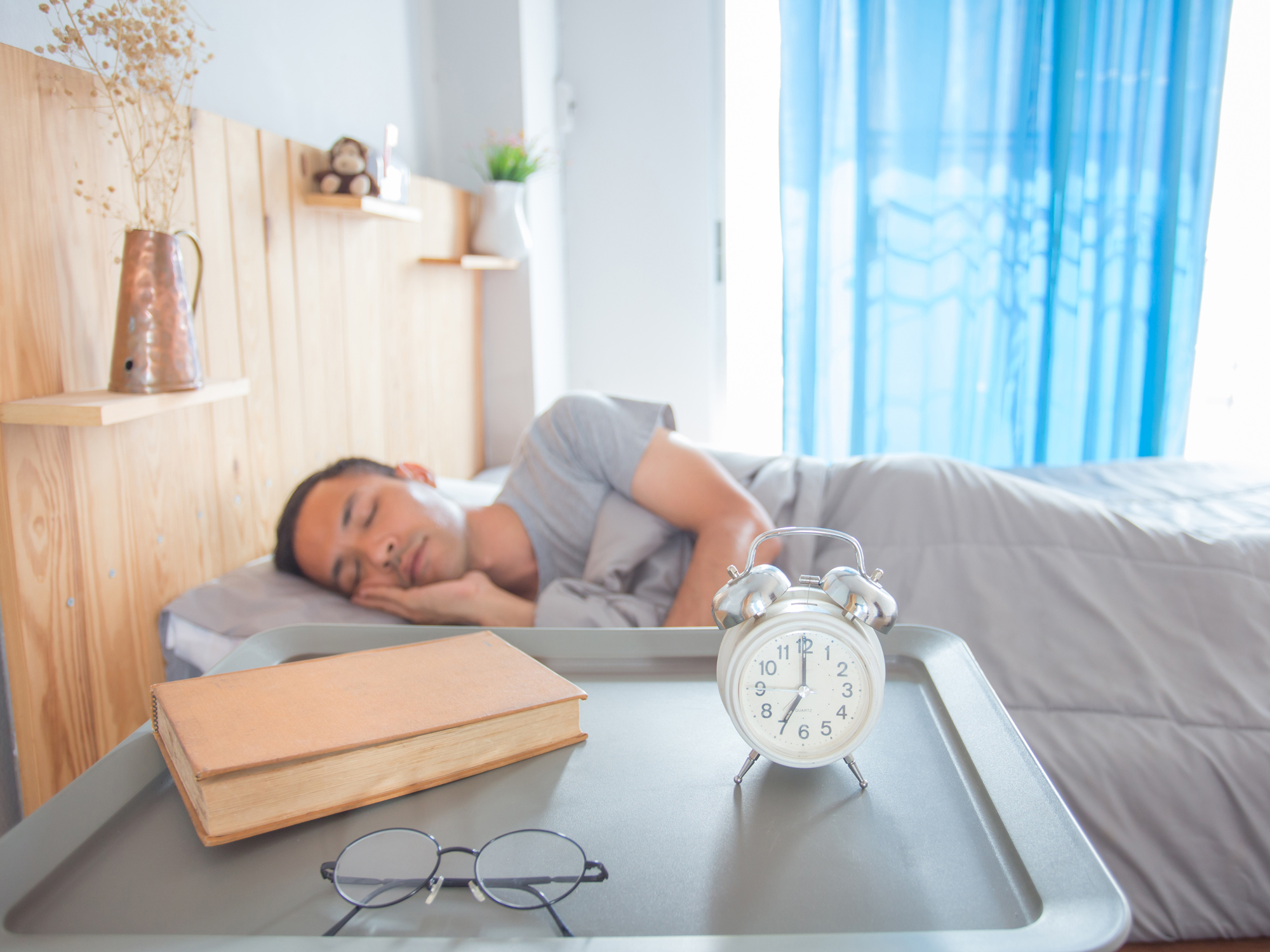Get Easy Health Digest™ in your inbox and don’t miss a thing when you subscribe today. Plus, get the free bonus report, Mother Nature’s Tips, Tricks and Remedies for Cholesterol, Blood Pressure & Blood Sugar as my way of saying welcome to the community!
Meet the people who are immune to insomnia

It’s one of those nights…
You’re flopping around in bed like a carnival goldfish who got dropped on hot asphalt. Sighing. Praying. Staring at the clock counting down the hours before you need to wake up for work. Before you know it, your alarm goes off and you didn’t get one minute of sleep all night. Not one.
You head to work like the trooper you are. And when you get there your co-worker is extra chipper. She tells you about the fantastic date she went on last night and asks how your evening was. You tell her the truth: Not good because you couldn’t sleep. She smiles and says she’s sure it will get better soon. And that when she can’t sleep, she drinks a glass of warm milk and it knocks her right out.
Now, you know she’s being kind and optimistic. But at that moment, her well-meaning optimism drives you crazy. You’re tired. You’re crabby. You’re in no mood to make small talk. And who can blame you?
Related: 9 conditions and other sneaky factors that rob your sleep
Anyone who’s spent a night tossing and turning instead of sleeping knows you’re not your best self the next day. You notice every little annoying thing about everything and everyone you interact with all day. Because basically, the less sleep you get, the harder it is to see the world through a positive lens.
But that’s a huge problem for you. And here’s why…
People with a sunny outlook sleep like babies
A new study from researchers at the University of Illinois shows that optimists sleep better.
The study included more than 3,500 people between 32 and 51 years old. Researchers gauged their optimism using a 10-question survey. The survey asked them to rate how closely they agreed with statements like “I’m always optimistic about my future” and “I hardly expect things to go my way” on a scale of one to five.
Participants also took two sleep surveys five years apart. These surveys gauged things like whether they had difficulty falling asleep or other symptoms of insomnia and how many hours of sleep they got every night. And one fact was as clear a 90s Neutrogena model’s skin…
The more optimistic people were, the better they were sleeping. Optimists were more likely to get six to nine hours of sleep every night and were 74 percent more likely to have no symptoms of insomnia. They were also less likely to feel sleepy during the day.
Why would something as simple as a sunny perspective lead to better sleep? Well, researchers have one theory…
“Optimists are more likely to engage in active problem-focused coping and to interpret stressful events in more positive ways, reducing worry and ruminative thoughts when they’re falling asleep and throughout their sleep cycle,” said lead researcher Rosalba Hernandez.
Overcome insomnia through optimism
So, if you have sleep problems like insomnia, try adopting a more optimistic outlook.
It won’t be easy. Changing how you think and perceive the world takes dedication and practice. But you can retrain your brain for optimism instead of pessimism. How do you start?
- Pay attention to your thoughts. When you notice yourself thinking something negative about a person, situation or circumstance, ask yourself if there’s also something positive about that person, situation or circumstance. For example, if the rain’s making you grumpy because it’s slowing down your morning commute, remind yourself that it’s also providing water to your garden, so it will be lush and beautiful.
- Pay attention to who you spend time with, what you watch and listen to during your day. It’s amazing how the messages we hear influence our mood and world view. If you’re around positive people and listening to positive media sources, it’s easier for you to maintain a positive outlook. So, you may want to give your optimistic and well-meaning co-worker another chance…no matter how annoying she is after a night of not sleeping.
If you’re really struggling to sleep and you think anxious, pessimistic thoughts have something to do with it, consider cognitive behavioral therapy. Cognitive-behavioral therapy is a form of psychotherapy that helps you change unproductive emotions, behaviors, and thoughts. It’s often used to treat depression and anxiety. The Association for Behavioral and Cognitive Therapies has a database you can search to find someone local. Psychology Today provides a searchable database of cognitive-behavioral therapists too.
Sources:













